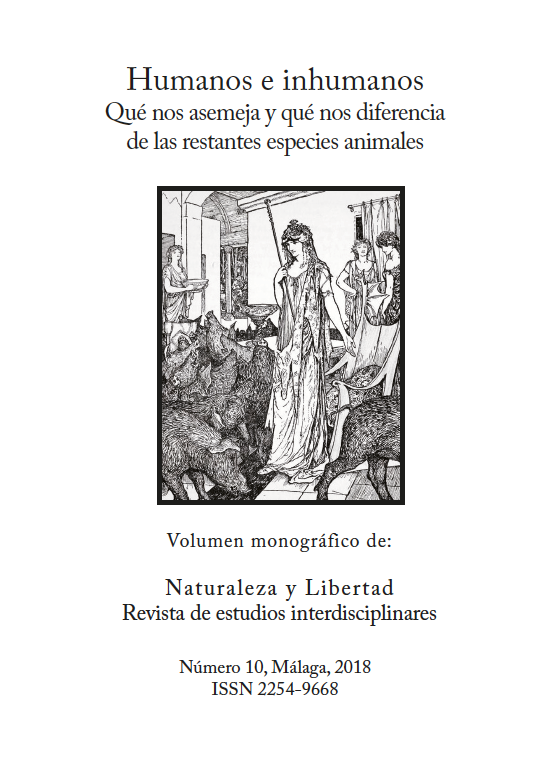La característica diferencial de los humanos en perspectiva noológica
DOI:
https://doi.org/10.24310/nyl.v10i3.3661Keywords:
Noología, Fenomenología, Persona, Inteligencia sentiente, Hiperformalización, ZubiriAbstract
Resumen: El objetivo del artículo es mostrar la contribución de la Noología de Zubiri para establecer la diferencia entre el hombre y el animal no humano. La noología consiste en una transformación de la fenomenología, que analiza el acto de la intelección sentiente, mediante la combinación del análisis filosófico y el conocimiento científico, llegando hasta una nueva metafísica de la realidad per-sonal, que se funda en la inteligencia.
Palabras clave: Noología, Fenomenología, Persona, Inteligencia sentiente, Hi-performalización, Zubiri.
The Human Differential Characteristics in Noologycal Perspective
Abstract: The aim of this paper is to show the contribution of Zubiri’s Noology for establishing the difference between human being and non human animals. Noology consists in a transformation of Phenomenology, which analyses the act the sentient intellection through a combination of philosophical analysis and scientific knowledge, in order to achieve a new metaphysics of personhood, based on the intelligence.
Keywords: Noology, Phenomenology, Personhood, Sentient Intelligence, Hyperformalization, Zubiri.
Downloads
Metrics
Downloads
Published
How to Cite
Issue
Section
License
Those authors who have publications with this journal, accept the following terms:
1. Copyright and licensing information are clearly described on the journal’s web site: all content published in Naturaleza y Libertad is open acces without limit, and are subject to the Attribution-NonCommercial-ShareAlike 4.0 International (CC BY-NC-SA 4.0) license. The full text of which can be consulted at https://creativecommons.org/licenses/by-nc-sa/4.0/
2. It is the responsibility of the authors to obtain the necessary permissions for the images that are subject to copyright. The authors whose contributions are accepted for publication in this journal will retain the non-exclusive right to use their contributions for academic, research and educational purposes, including self-archiving or deposit in open access repositories of any kind. The electronic edition of this magazine is edited by the Editorial de la University of Malaga (UmaEditorial), being necessary to cite the origin in any partial or total reproduction.
3. This journal allows and encourages authors to publish papers on their personal websites or in institutional repositories, both before and after their publication in this journal, as long as they provide bibliographic information that accredits, if applicable, your posting on it.
4. In no case will anonymous papers be published.





18.png)













